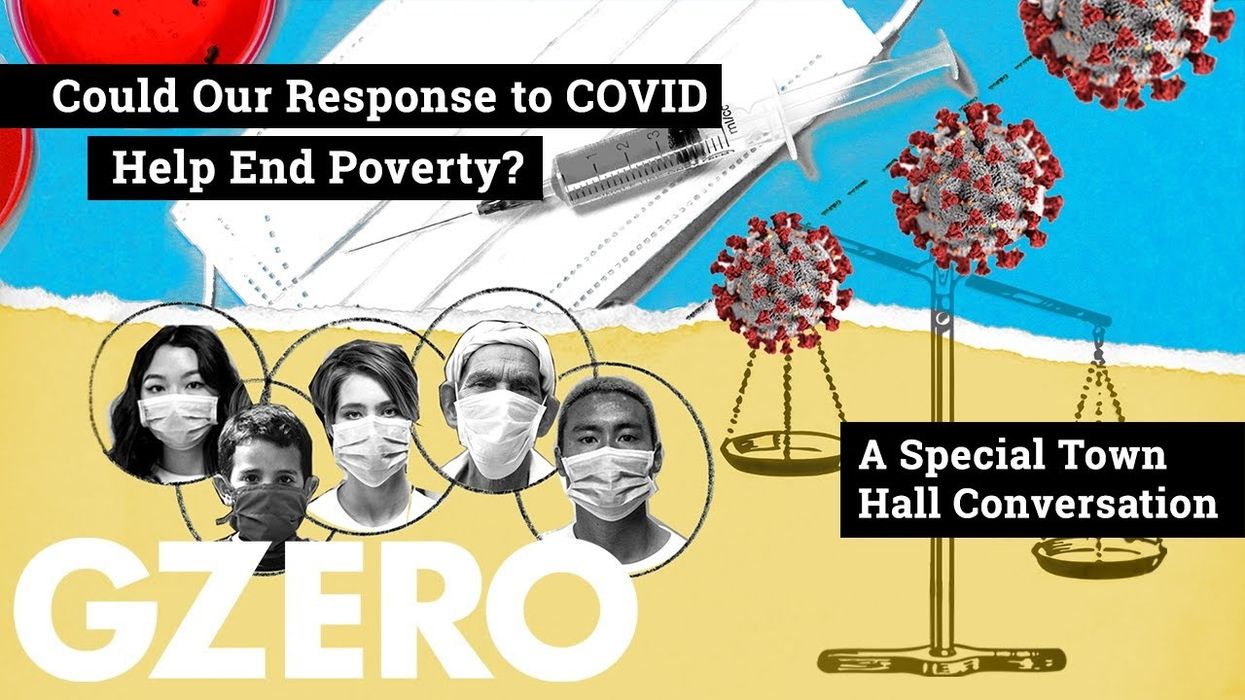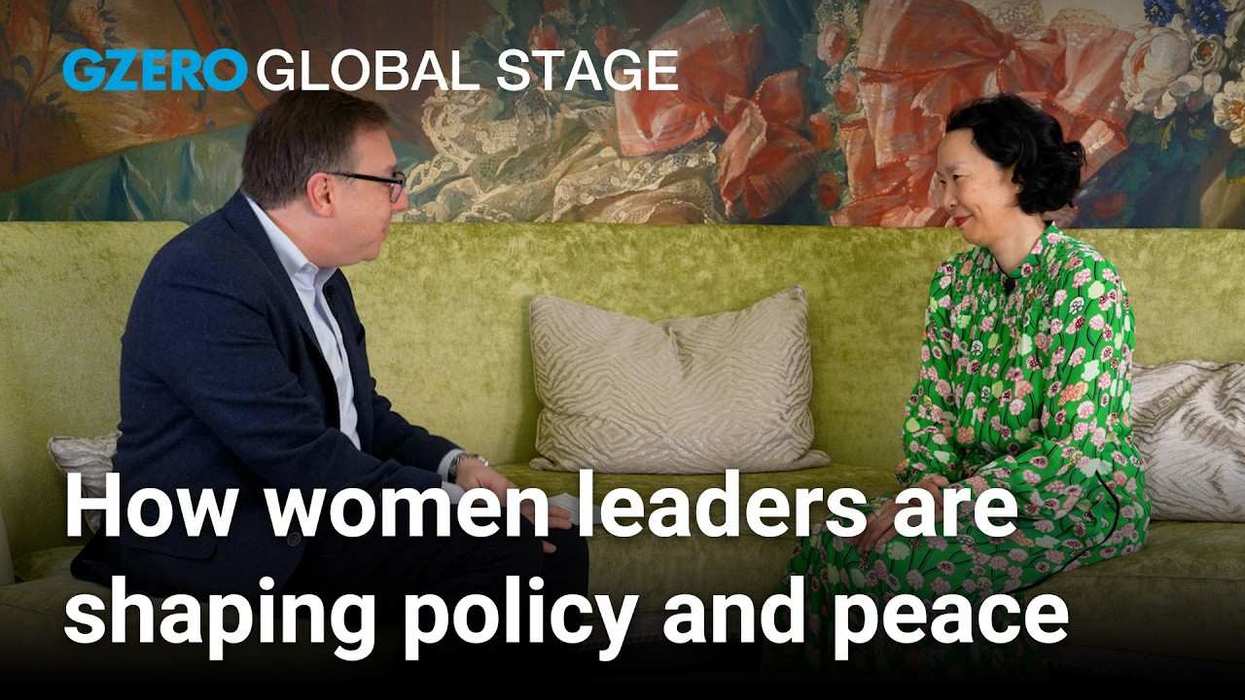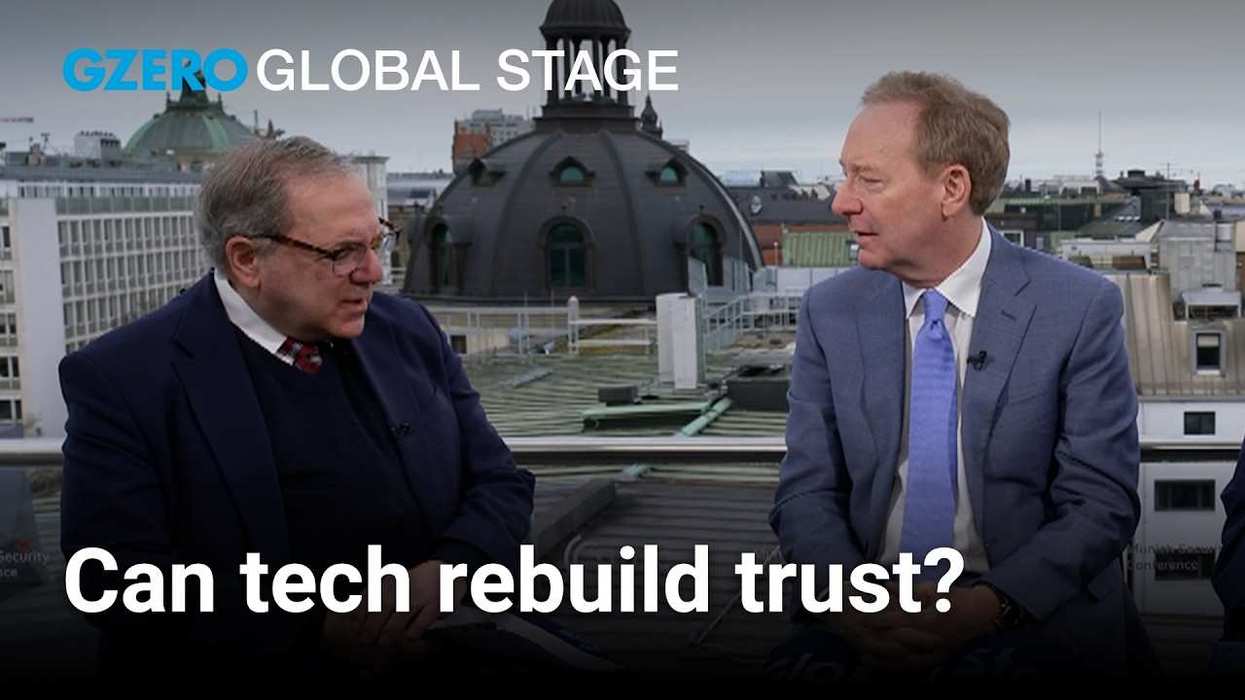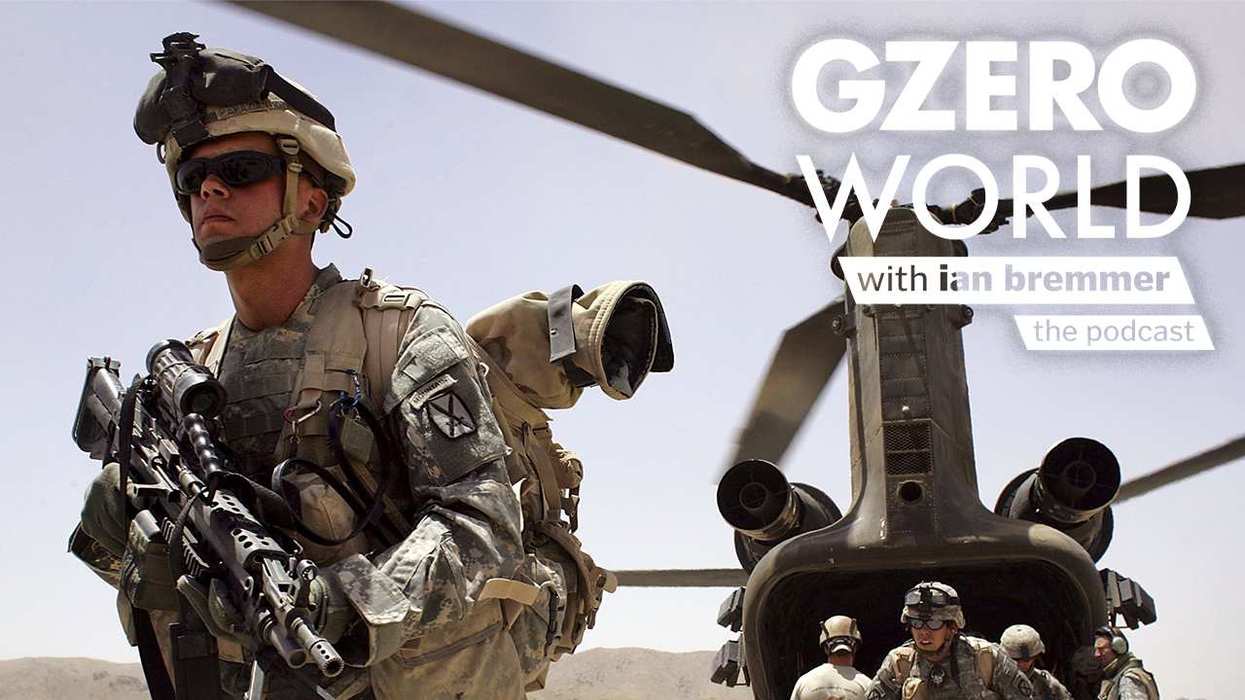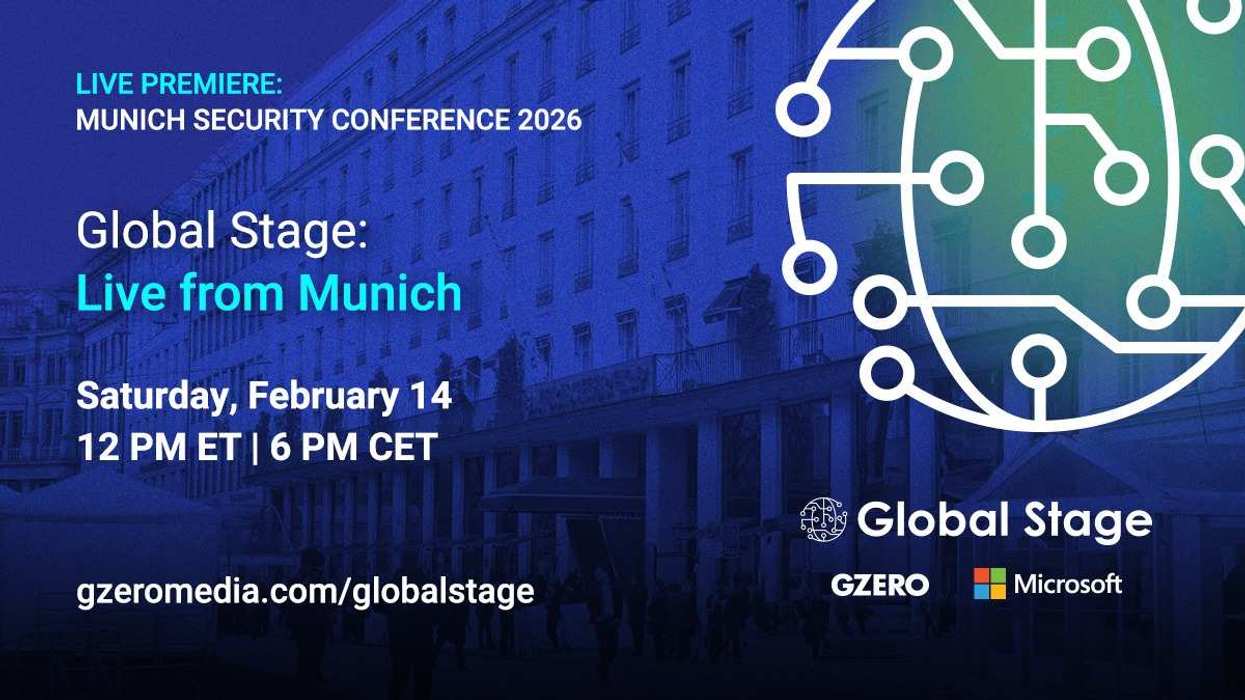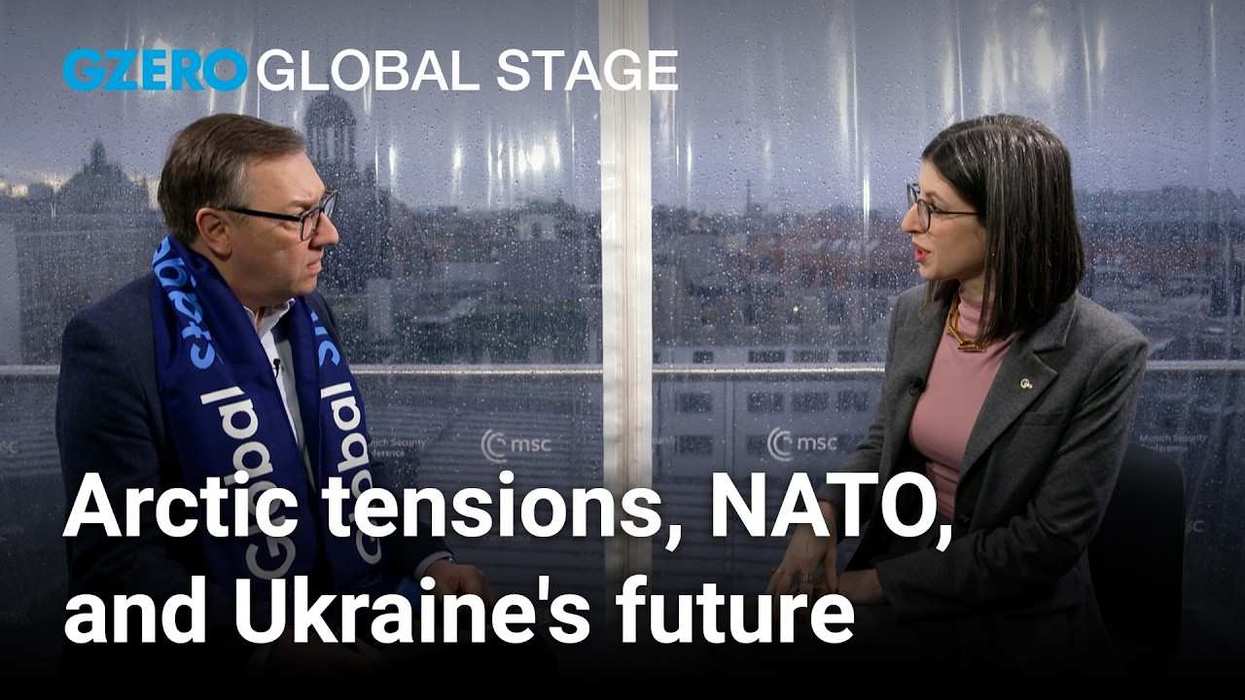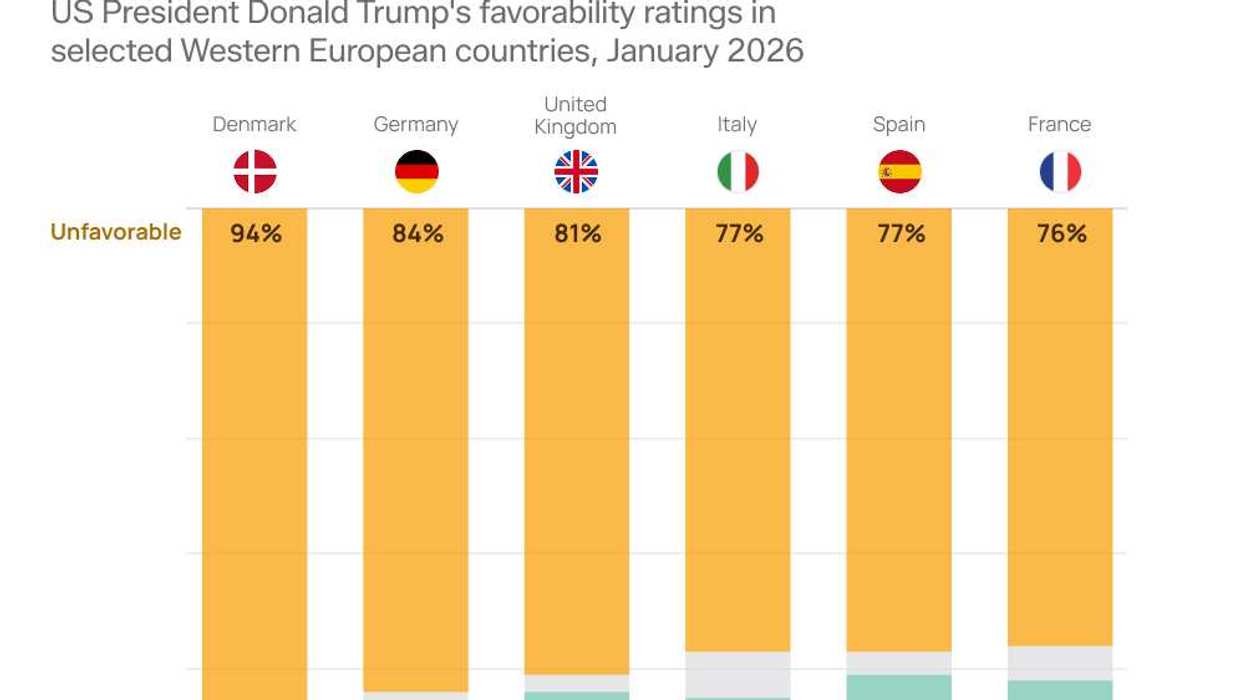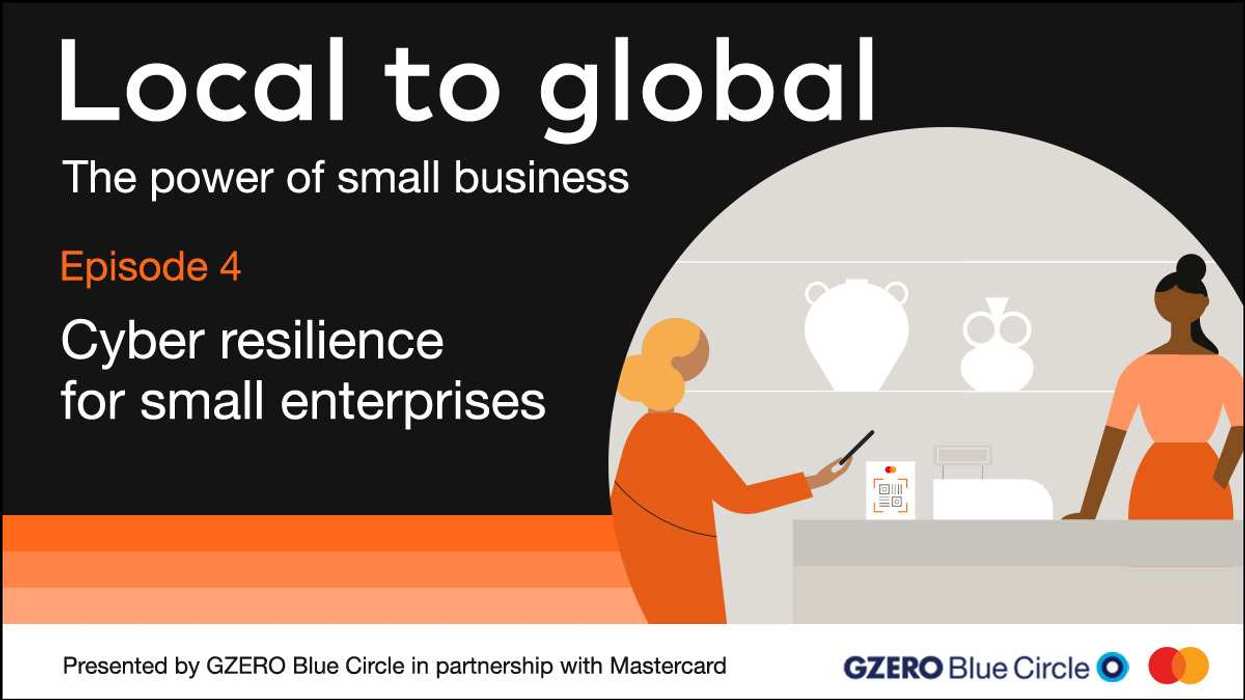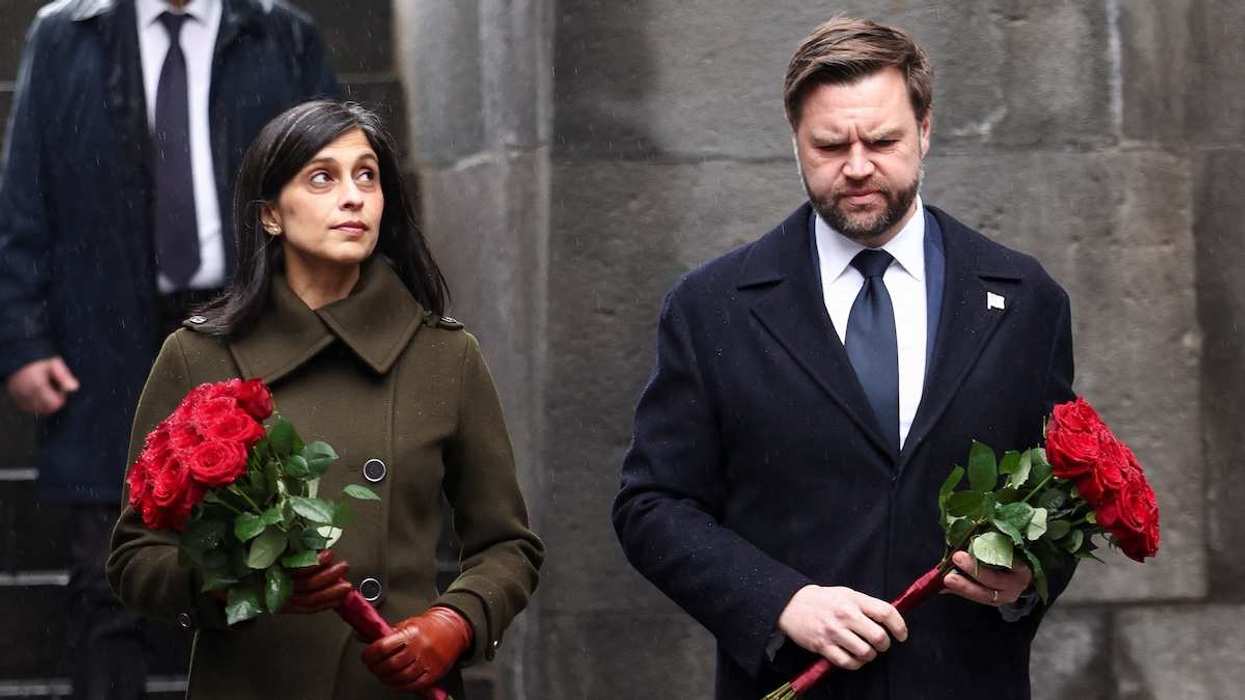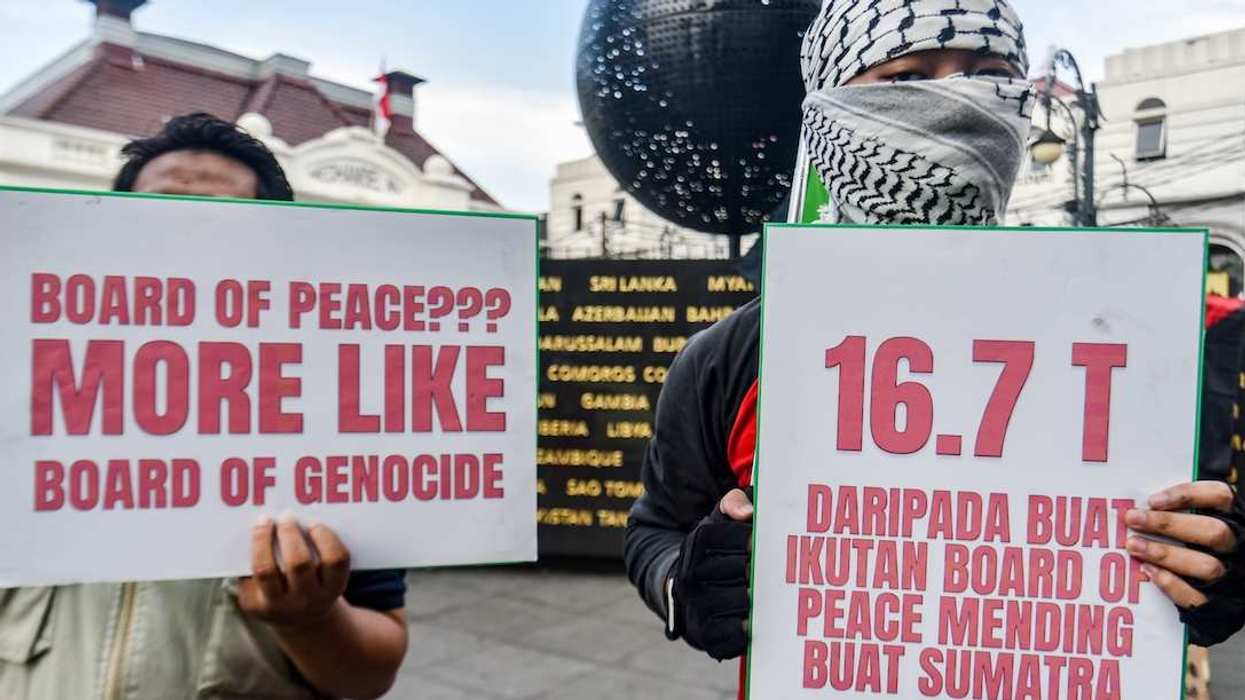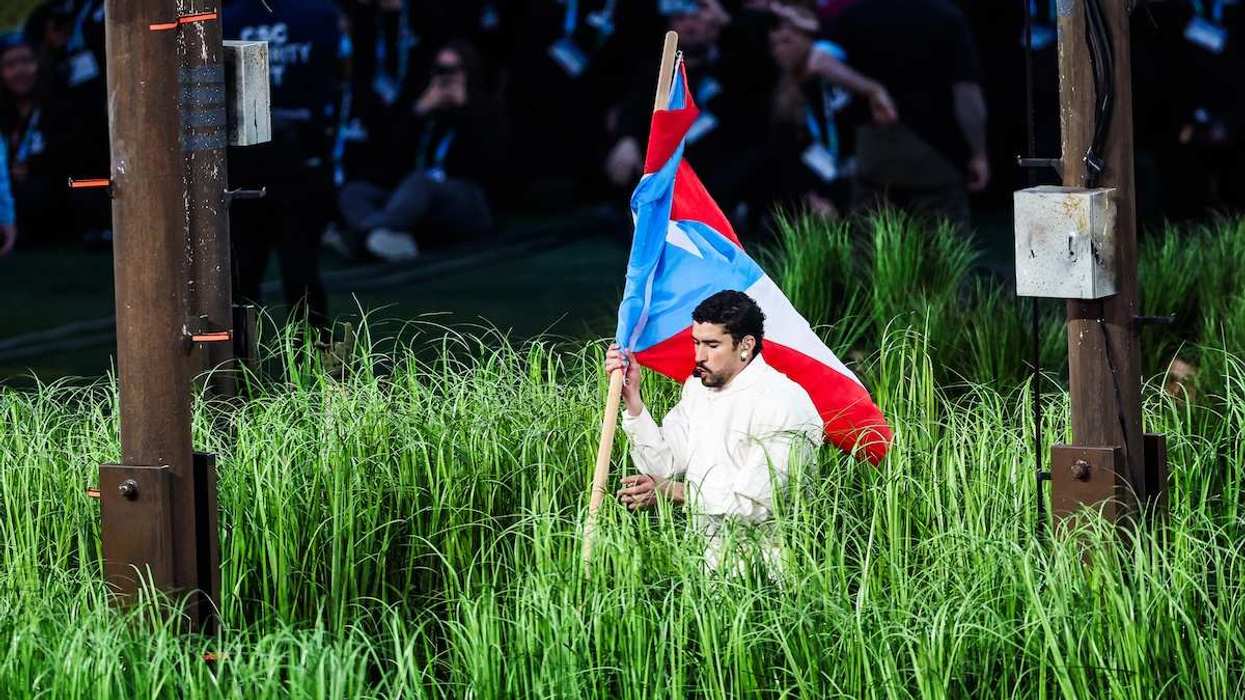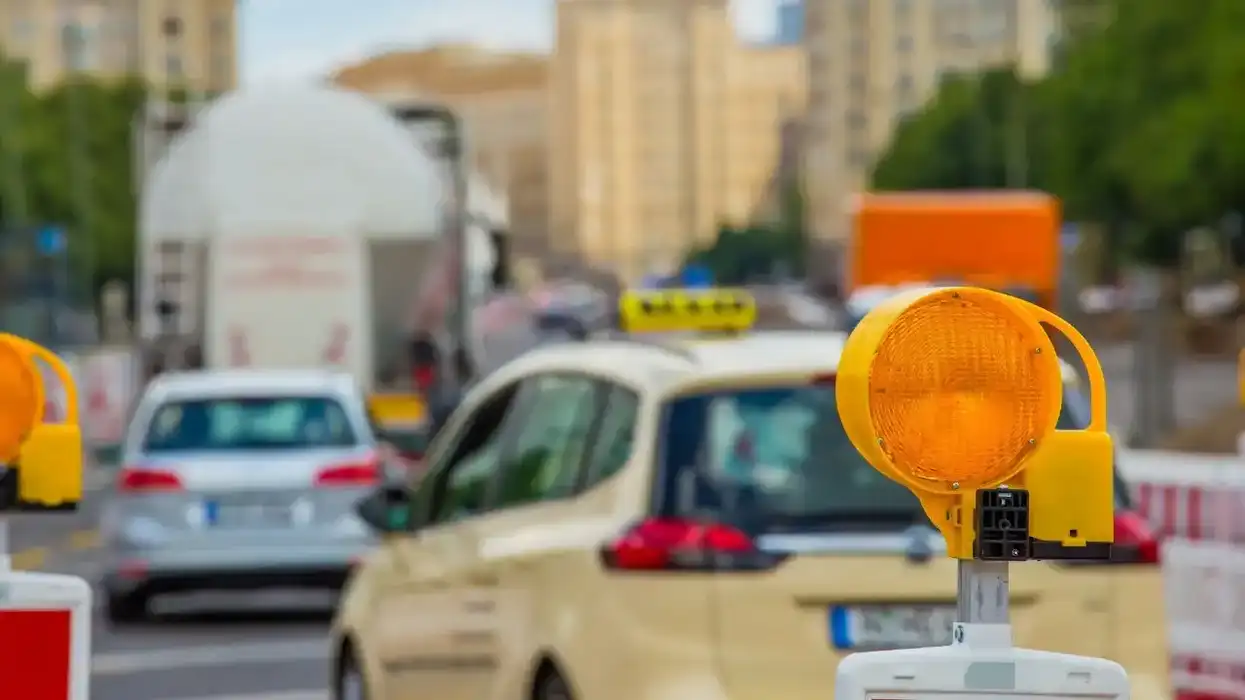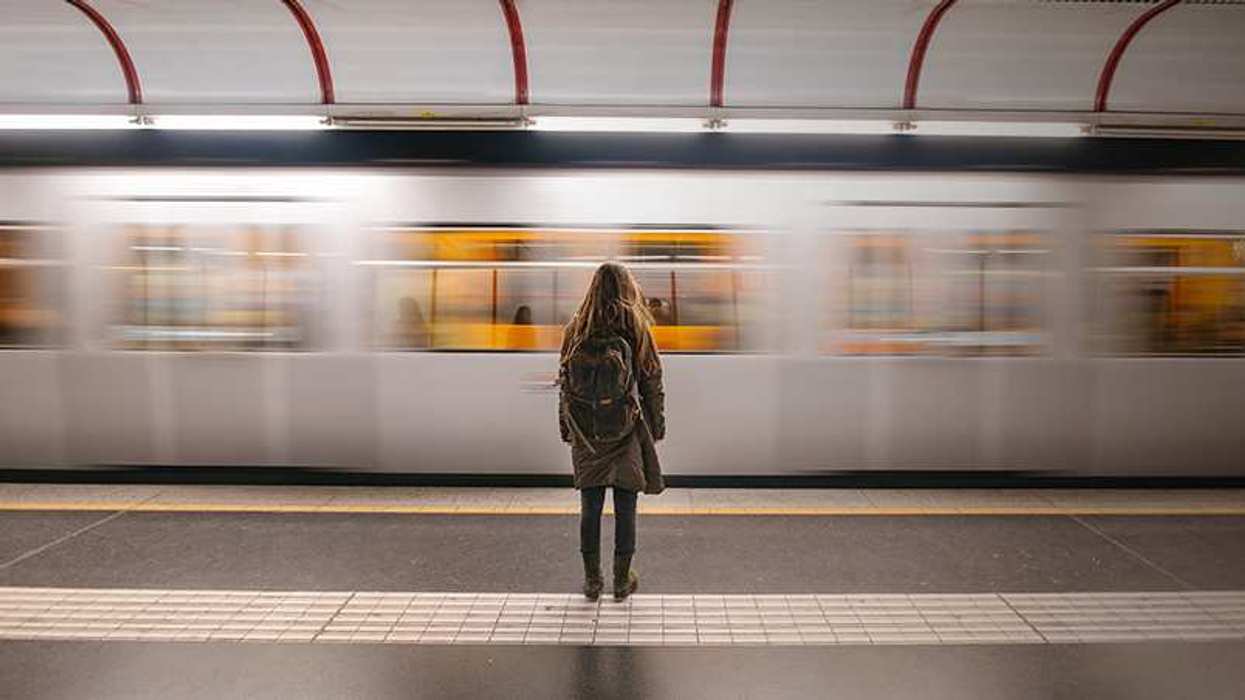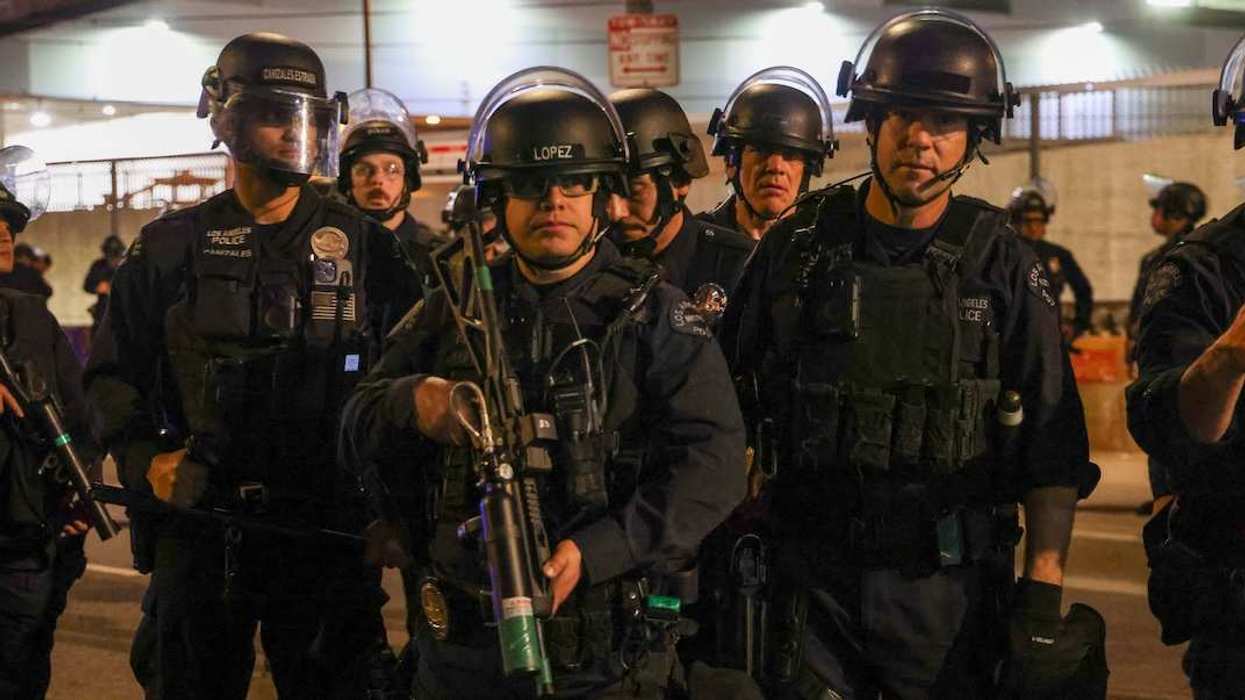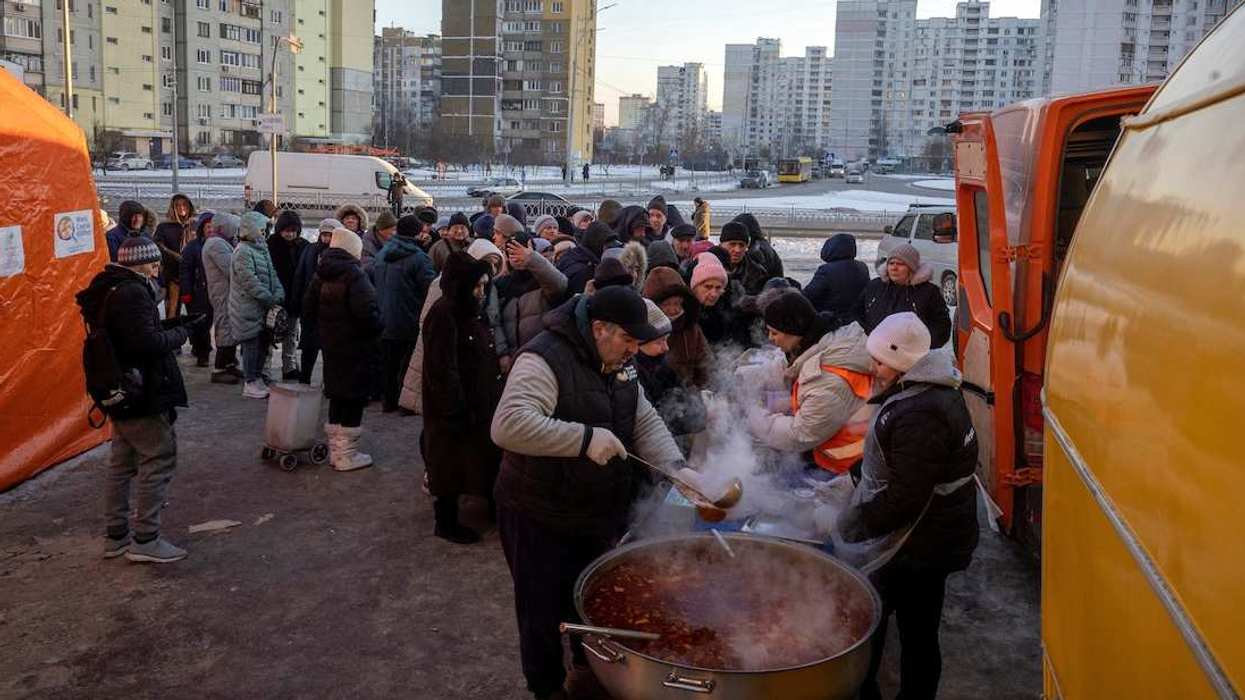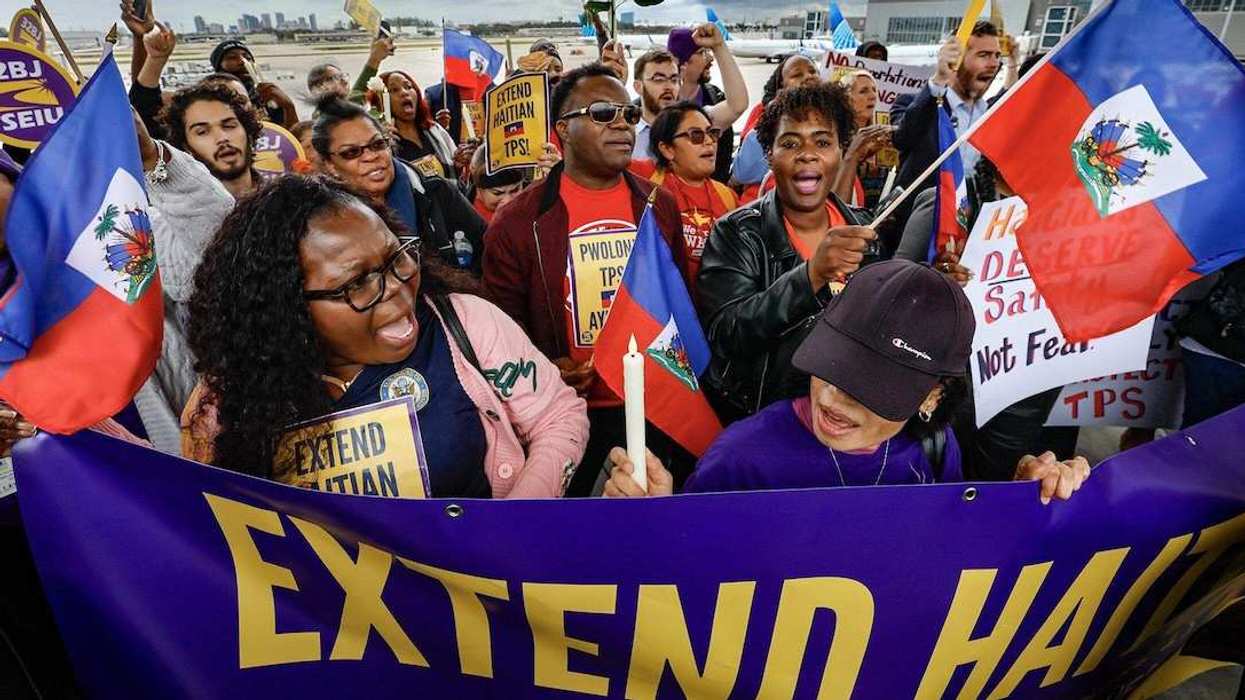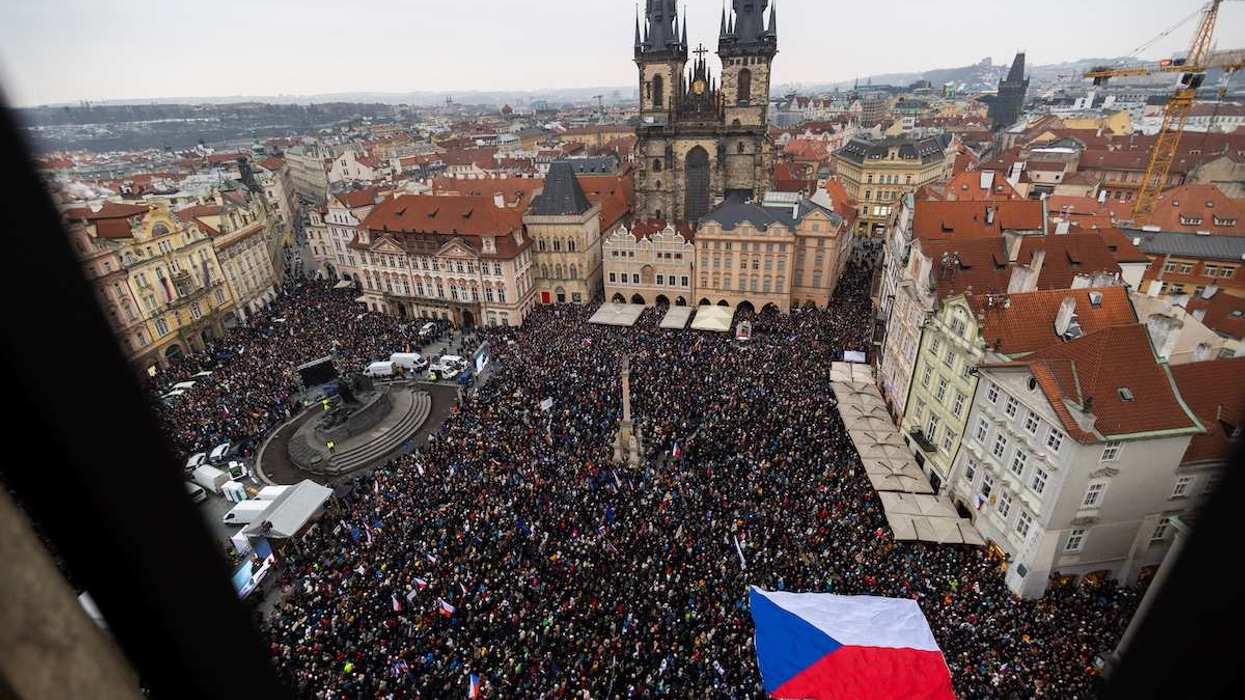VIDEOSGZERO World with Ian BremmerQuick TakePUPPET REGIMEIan ExplainsGZERO ReportsAsk IanGlobal Stage
Site Navigation
Search
Human content,
AI powered search.
Latest Stories
Sign up for GZERO Daily.
Get our latest updates and insights delivered to your inbox.
Global Stage: Live from Munich
WATCH RECORDING
Past Events
Watch our recent livestream events: live panel discussions, town halls and summits with global experts and leaders.
Presented by
GZERO Media, in partnership with the Bill and Melinda Gates Foundation and Eurasia Group, today hosted its first virtual town hall on how to fight global poverty amid the coronavirus pandemic.
The panel featured Gates Foundation CEO Mark Suzman, Eurasia Group and GZERO Media President Ian Bremmer, and Vera Songwe, Executive Secretary of the United Nations Economic Commission for Africa. The conversation was moderated by Africa No Filter's Moky Makura.
Watch the full video above.
Has the pandemic strengthened or weakened multilateral organizations?
Songwe:
- It has reinforced and strengthened them, not weakened them, by creating space for larger collaborative platforms. At the UN, we are bringing in some of the leading economists and think tanks in the world to think about how we can respond to this crisis differently. Questions about inclusion and participation are already starting to come to the table, as the UN's open platform brings in civil society voices on this subject. The World Health Organization has been a shining light, guiding us in terms of the scientific evidence, while other institutions, like the Centers for Disease Control in Africa and elsewhere, have been particularly important.
- But resources are slim. We need to shore these multilateral institutions with more professional and scientific staff, as well as more financing for the International Monetary Fund and the World Bank, so they can respond in a timely manner to the economic aspect of this crisis.
How do we ensure that if a COVID-19 vaccine is developed, it can reach every corner of the globe?
Suzman:
- Let polio be an example. Last week, Africa was officially declared polio-free by the WHO, meaning the only parts of the world that still have the disease are Afghanistan and Pakistan. That shows you what can be done, even in very challenging logistical environments. The world knows how to do it. GAVI, the Vaccine Alliance, has probably saved more lives in the last 20 years than any collaborative effort in human history. I'm relatively optimistic. It is challenging, but we know how to do it. We have the constructs, we have the supply chains, we have the health systems.
- What we don't have is the money and resources to be able to procure at scale in sufficient volume. What is equitable distribution and how do you do it rapidly at a time when so many individual countries may try to lock up supply for their own citizens. It's an understandable impulse, but there's a risk that this kind of "vaccine nationalism" actually sets the world back.
Should low- and middle-income countries be entitled to debt relief amid the pandemic?
Bremmer:
- Sure, but under what conditions? Austerity-based reforms that Western economists believe will create more sustainable long-term growth can cause enormous hardship for populations that you don't really want to hurt. Loans are also often attached to political reforms — and that's where China is going to be critical to the debt relief equation, particularly in sub-Saharan Africa, where Beijing isn't going to demand the same kind of economic or political liberalization in exchange for support. Frequently the Chinese conditions are much more opaque, sometimes beholding these countries to China's economic and political interests, which may not be good for either the world or these countries' populations.
- I think we have to worry that as the global order is fragmenting, especially as the US and China are at much greater odds with each other. We could well be fighting over conditionality and debt for some of the most vulnerable countries, and that's something that we're going to have to pay attention to.
Keep reading...Show less
More from Past Events
The power of women leaders in global decision-making & peacebuilding
February 14, 2026
NATO’s new normal: “We may not be at war, but we’re not at peace”
February 14, 2026
Quick Take
Feb 14, 2026
Can tech rebuild trust?
February 14, 2026
President Trump's power-first foreign policy with CFR's President
February 14, 2026
Ian Explains
Feb 13, 2026
Hard Numbers: Valentine’s Day Edition
February 13, 2026
US-Iran talks: Are strikes inevitable?
February 13, 2026
You vs. the News: A Weekly News Quiz - February 13, 2026
February 13, 2026
Are we in an era of "wrecking ball politics?"
February 12, 2026
Munich Security Conference: Can Europe defend itself without the US?
February 12, 2026
Graphic Truth: Where risk is heating up the fastest
February 12, 2026
Graphic Truth: Europe isn't loving Trump
February 12, 2026
US government to fund MAGA-aligned groups in Europe
February 12, 2026
Puppet Regime
Feb 12, 2026
Cyber resilience for small enterprises
February 12, 2026
Sanae Takaichi has the power to change Japan
February 11, 2026
Post-Gen Z revolution, where does Bangladesh go next?
February 11, 2026
What’s Good Wednesdays™, February 11, 2026
February 11, 2026
Football wins, local economy scores
February 11, 2026
Walmart’s $1 billion investment is strengthening associate careers
February 11, 2026
Building community-first AI infrastructure
February 10, 2026
Venezuela’s window is open – but only a little
February 10, 2026
ask ian
Feb 10, 2026
Trump says Modi says he won't buy more oil from Russia
February 10, 2026
Freedom of expression at the Olympics
February 09, 2026
Bad Bunny makes it to the Oval Office
February 09, 2026
US troops arrive in Nigeria
February 09, 2026
Trump announces new Olympic games
February 09, 2026
Inside Mastercard’s vision for smarter, connected mobility
February 09, 2026
Is the tide turning on Russia’s sports exile?
February 06, 2026
You vs. the News: A Weekly News Quiz - February 6, 2026
February 06, 2026
Graphic Truth: India's imports of Russian oil
February 05, 2026
The American experiment in Liberia
February 05, 2026
The Debrief
Feb 05, 2026
Renters catch a break
February 04, 2026
Is Trump about to strike Iran (again)?
February 04, 2026
Walmart’s commitment to US-made products
February 04, 2026
What’s Good Wednesdays™, February 4, 2026
February 04, 2026
Is China’s currency coming for the US dollar?
February 04, 2026
Haiti is on borrowed time
February 03, 2026
Building community-first AI infrastructure
February 03, 2026
Epstein and America’s two-tier justice system
February 03, 2026
Why Singapore sees AI as an opportunity, not a threat
February 03, 2026
Trump’s next move in Iran
February 02, 2026
The politics of population
February 02, 2026
How Singapore navigates a fragmented world
February 02, 2026
Singapore's global moment, with President Tharman Shanmugaratnam
January 31, 2026
Singapore thrived on globalization. Now what?
January 30, 2026
Graphic Truth: Costa Rica’s severe murder rate
January 30, 2026
Costa Rica’s crime-time election
January 30, 2026
You vs. the News: A Weekly News Quiz - January 30, 2026
January 30, 2026
Why the EU-India trade deal matters
January 29, 2026
What to know about China’s military purges
January 28, 2026
Five forces that shaped 2025
January 28, 2026
What’s Good Wednesdays™, January 28, 2026
January 28, 2026
Two US borders, two different approaches to Trump
January 28, 2026
Walmart’s commitment to US-made products
January 28, 2026
GZERO Europe
Jan 27, 2026
Trump, Canada, and the future of the free world
January 27, 2026
China’s economy is growing, but it’s stuck in a deflationary trap
January 27, 2026
GZERO Series
GZERO Daily: our free newsletter about global politics
Keep up with what’s going on around the world - and why it matters.
